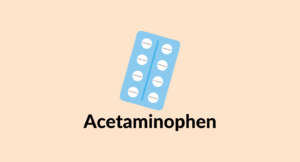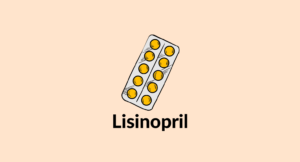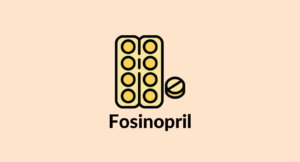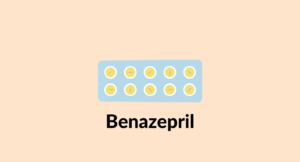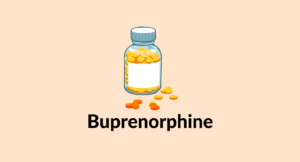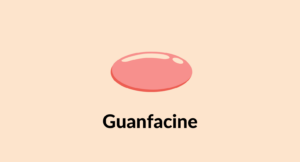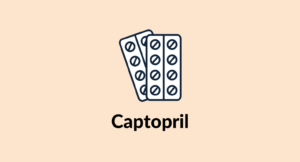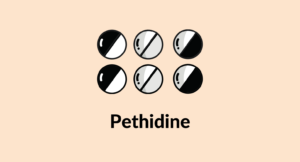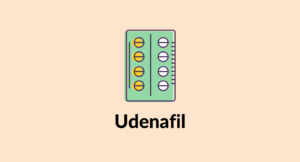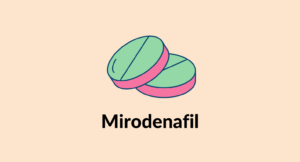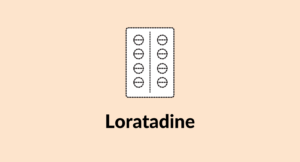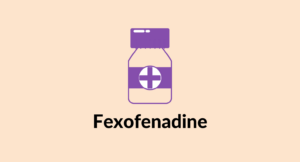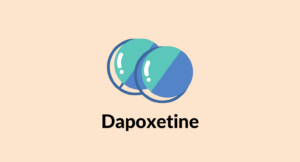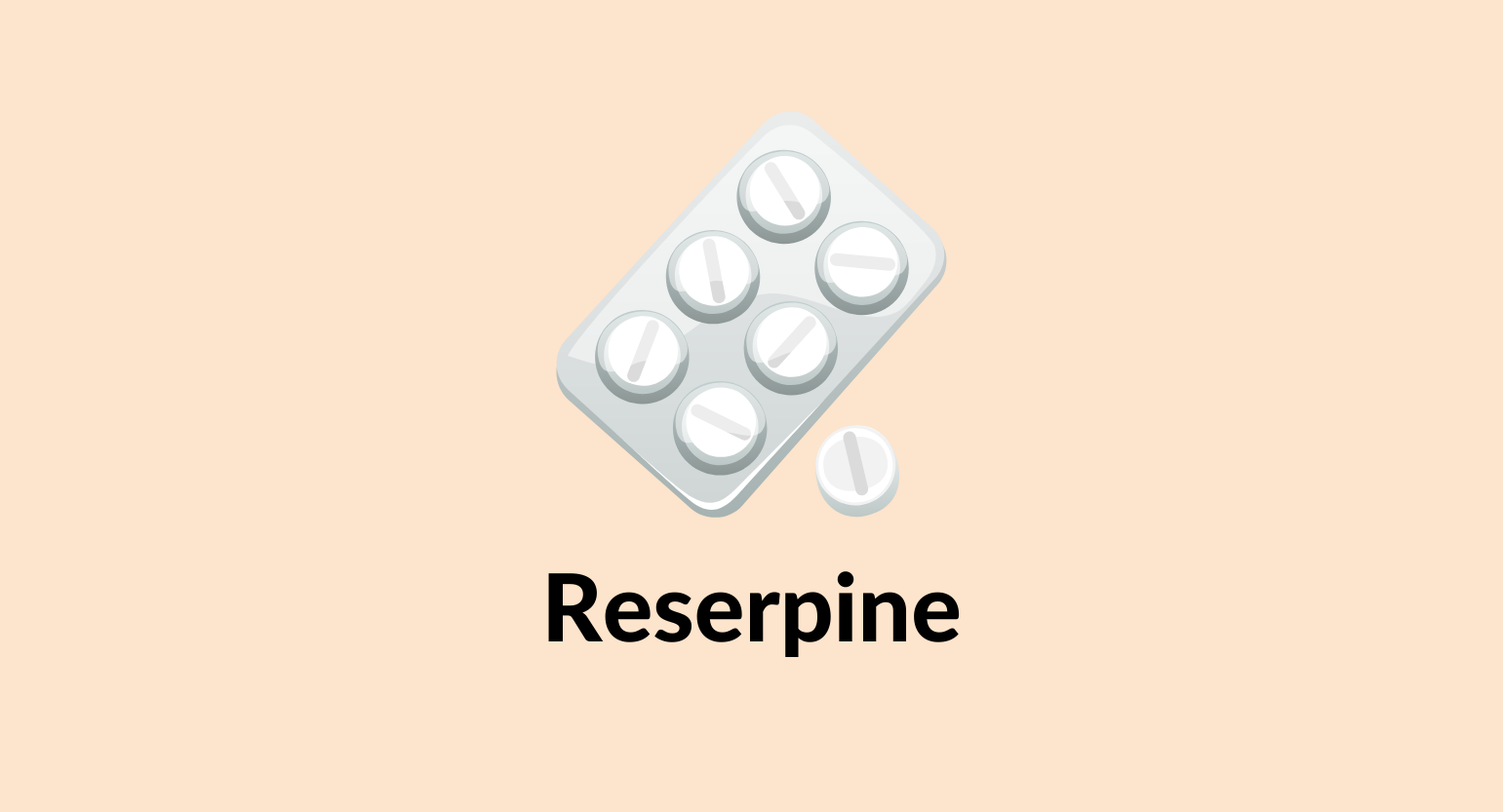
Does CBD Interact With Reserpine (Serpasil)?
Cannabidiol (CBD) may react with the antihypertensive reserpine by causing blood pressure to drop too low — leading to dizziness and fainting.
Reserpine (Serpasil) is an adrenergic blocking agent used to treat mild to moderate hypertension. It belongs to the class called peripheral adrenergic inhibitors.
Using CBD (cannabidiol) and reserpine together may increase reserpine’s potency as an antihypertensive, leading to side effects such as dizziness, confusion, and fainting.
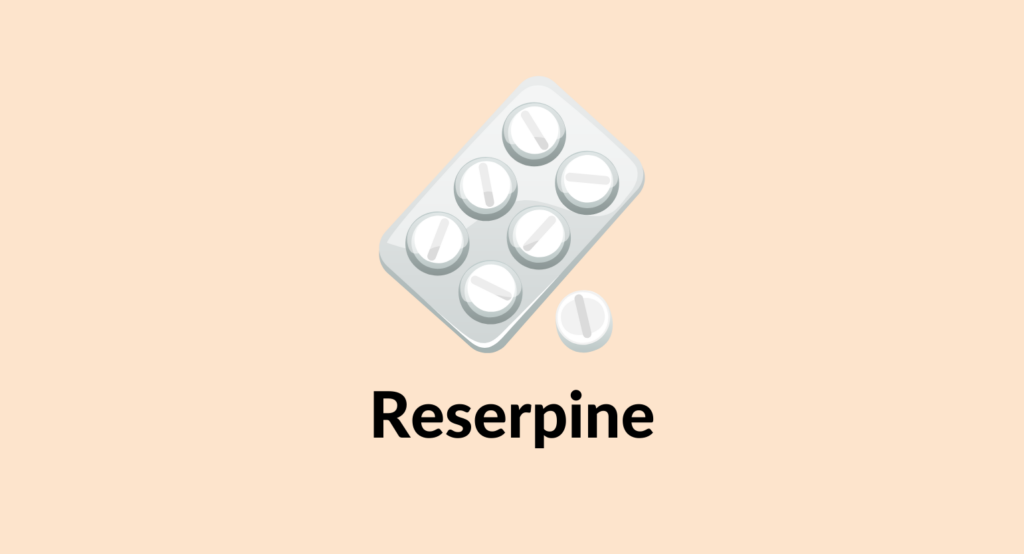
Does CBD Interact With Reserpine (Serpasil)?
Yes. CBD may interact with reserpine.
CBD can act as an agonist to reserpine — which means it may increase its effects, causing blood pressure to drop too low.
This action could result in a sudden drop in blood pressure, fainting, headaches, confusion, and more.
Related: Which Medications Shouldn’t Be Taken With CBD?
Similar Medications: CBD & Peripheral Adrenergic Inhibitors
Reserpine is classified as a peripheral adrenergic inhibitor. CBD and peripheral adrenergic inhibitors all share similar risks for interaction and side effects.
Here’s a list of medications that share a similar level of risk when combined with CBD:
- Guanadrel (Hylorel)
- Guanethidine Monosulfate (Ismelin)
Is It Safe to Take CBD & Reserpine (Serpasil) Together?
CBD and reserpine can have a moderate risk of interacting with each other. Serious adverse effects aren’t expected, but caution should be taken if taking reserpine. Speak to your doctor before combining CBD with reserpine or any other antihypertensive medications.
This is especially important in the case of consuming both drugs on a recurring basis.

Is CBD A Viable Alternative to Reserpine (Serpasil)?
CBD has the potential to be an antihypertensive. However, it may not be a perfect alternative to reserpine just yet.
CBD can lower blood pressure by working on the CB1 receptors in the endothelium. It can release nitric oxide, helps dilate the blood vessels and decrease blood pressure [1].
A study showed that CBD is capable of reducing blood pressure in users who also have increased heart rates [2].
CBD’s antioxidative and anti-inflammatory properties may also help treat inflammatory conditions that surround high blood pressure as well [3].
Hence, CBD has been showing promising results in being able to reduce high blood pressure. However, since reserpine is used in cases of severe hypertensive patients whose previous treatment failed despite using first-line antihypertensives, CBD may not be able to work on that level just yet. So while it is a good adjunct and may even replace hypertensives in mild cases, it may not be adequate for use in severe conditions.
What is Reserpine (Serpasil)?
Reserpine is a peripheral prescription-only, adrenergic inhibitor derived from the rauwolfia family of plants. This alkaloid is extracted from the roots of Rauwolfia serpentina and Rauwolfia vomitoria. It’s most commonly used for treating hypertension and often combined with hydrochlorothiazide (a diuretic, also used for treating hypertension).
Reserpine is no longer protected by patents and is therefore available in both brand name and generic forms. The most common brand name for reserpine is Serpasil.
Reserpine (Serpasil) Specs:

| Drug Name | Reserpine |
| Trade Name | Serpasil, Serpalan, Adelphane, Hydrap-ES, Renese-R, Salutensin, Serathide, Serpex |
| Classification | Peripheral Adrenergic Inhibitors |
| CYP Metabolism | Unknown |
| Interaction With CBD | Agonistic, Metabolic competition |
| Risk of Interaction | Moderate Risk |
Other Names For Reserpine (Serpasil)
Reserpine is sold under many different names. All share a similar level of risk of interacting with CBD or other cannabinoids.
Other names for reserpine (Serpasil) include:
- Adelphane
- Hydrap-ES
- Renese-R
- Salutensin
- Serathide
- Serpalan
- Serpex
What Does Reserpine (Serpasil) Do?
Reserpine is one of the first drugs ever made to treat hypertension. This is common with plant-derived medications. They offer the first step in drug development before other molecules are designed to address the shortcomings of these early-generation medications.
This particular drug works by blocking the uptake of the norepinephrine into the storage vesicles located in the vascular walls. This prevents the arteries from contracting, leading to a reduction in blood pressure. Older uses of this medication include the treatment of psychosis and dyskinesia.
Reserpine irreversibly blocks the hydrogen (H+)-coupled vesicular monoamine transporters (VMAT), called VMAT1 and VMAT2. VMAT1 is found in neuroendocrine cells, and VMAT2 is found in neurons. Reserpine blocks the neuronal VMAT2, which then inhibits uptake and reduces stores of the monoamine neurotransmitters norepinephrine, dopamine, serotonin, and histamine in the synaptic vesicles of neurons.
Reserpine also inhibits the adenosine triphosphate (ATP)/magnesium (Mg2+) pump, which is responsible for keeping the neurotransmitters into storage vesicles located in the presynaptic neurons. The neurotransmitters that are not gathered in the storage vesicle are metabolized by monoamine oxidase (MAO), causing a reduction in catecholamines. This causes a depletion of the catecholamines and serotonin from central and peripheral sympathetic nerve endings.
Since these structures help in controlling heart rate, the force of cardiac contraction, and peripheral resistance, depleting them causes depletion in all these actions, leading to lower blood pressure.
Today, reserpine is only used as a second-line treatment in hypertension when all other drugs have failed to lower blood pressure.
Reserpine also has antipsychotic properties, but its use for this purpose is limited as it isn’t as effective as other antipsychotic drugs due to many side effects. It was also used as a treatment for symptoms of dyskinesia in patients who have Huntington’s disease.
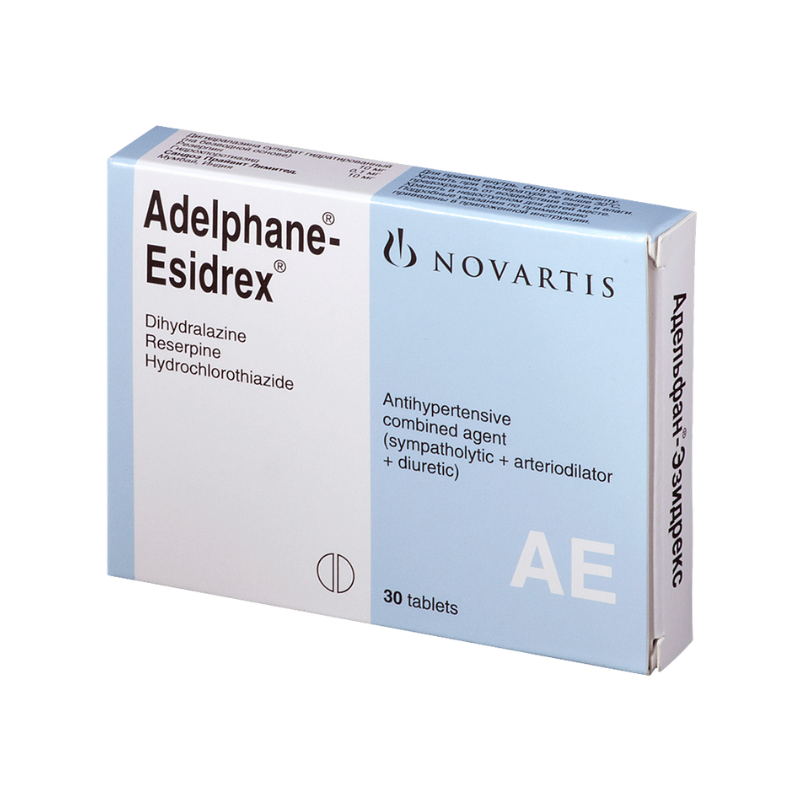
Side Effects of Reserpine (Serpasil)
- Anxiety
- Blurred vision
- Chest pain
- Decreased libido
- Depression
- Disturbance in vision
- Dizziness
- Enlarged breasts in males
- Excess secretion of gastrointestinal fluids
- Fainting
- Impotence
- Involuntary body movements
- Itching
- Lethargy
- Lightheadedness
- Loss of appetite
- Nasal congestion
- Nervousness
- Nightmare
- Premature ventricular contractions
- Rash
- Slow heart rate
- Swelling of extremities
- Thrombocytopenia purpura
- Weight gain
Contraindications of Using Reserpine
- Active peptic ulcer
- Electroconvulsive treatment within one week
- History of depression
- History of gallstones
- Hypersensitivity
- Ulcerative colitis

Key Takeaways: Is it Safe to Take Reserpine (Serpasil) With CBD?
CBD’s and reserpine’s interaction is considered moderate. Since they are agonists of each other and can both decrease blood pressure, using them both together for a long time may be dangerous.
So if you want to take them together, it’s important to talk to your physician first.
CBD may be a good alternative for addressing prehypertension but isn’t going to offer the same level of support as reserpine or other pharmaceutical antihypertensives.
References
- Stanley, C. P., Hind, W. H., Tufarelli, C., & O’Sullivan, S. E. (2015). Cannabidiol causes endothelium-dependent vasorelaxation of human mesenteric arteries via CB1 activation. Cardiovascular Research, 107(4), 568-578.
- Jadoon, K. A., Tan, G. D., & O’Sullivan, S. E. (2017). A single dose of cannabidiol reduces blood pressure in healthy volunteers in a randomized crossover study. JCI insight, 2(12).
- Atalay, S., Jarocka-Karpowicz, I., & Skrzydlewska, E. (2020). Antioxidative and anti-inflammatory properties of cannabidiol. Antioxidants, 9(1), 21.
Signup to our newsletter
Be the first to know about our newest arrivals and special offers!
